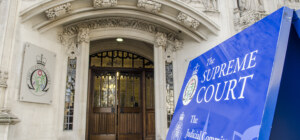Members’ duties and the court’s charity jurisdiction – implications of the CIFF judgment

Nicola Evans Charities Counsel
The Court of Appeal gave judgment on 6 July in the case of Lehtimäki v The Children’s Investment Fund Foundation (UK) & Ors. The decision raises significant questions about the duties of members of charitable companies (and CIOs) and the court’s jurisdiction regarding charities. In a potential clash between charitable governance and corporate governance, is a member of a charitable company limited by guarantee subject to duties to act in the best interests of the charity and, if so, can the court direct a member to act in a certain way?
Background
The charity (CIFF) was established as a charitable company limited by guarantee by Sir Christopher Hohn and his then wife Ms Jamie Cooper. Their relationship broke down and, after their divorce, they both remained as trustees and members of CIFF. The situation gave rise to ‘real difficulties in the management of CIFF’.
To resolve those difficulties, it was agreed, among other things, that CIFF would make a grant (the Grant) of US$360 million to a charity established and controlled by Ms Cooper and that Ms Cooper would stand down as a charity trustee and member of CIFF. Making the Grant was subject to the approval of the Charity Commission or the Court.
The first instance decision
The Court had to consider whether making the Grant was in the best interests of CIFF in furtherance of its objects, but also had to grappled with questions of company law as it applied to a charitable company.
One issue was whether the Grant amounted to payment for loss of Ms Cooper’s office under company legislation. The Court decided that it did, which meant that company law (s217 Companies Act 2006) would make the payment subject to approval by a resolution of the company’s members, while charity law (s201 Charities Act 2011) provided that the members’ resolution would be ineffective without the prior written consent of the Charity Commission.
This situation posed a dilemma for the Court – if the Court determined that it was in the best interests of CIFF to make the Grant and the Charity Commission gave consent to the members’ resolution, the trustees’ and the Court’s decisions could be defeated by the vote of the members of CIFF, or in this case the single independent member, Dr Lehtimäki.
The Court decided that payment of the Grant ‘is and will be’ in the best interests of CIFF, that members of CIFF owe fiduciary duties to act in the best interests of CIFF and not to act under a conflict of interest, and, in the circumstances of the case, the Court would direct Dr Lehtimäki to vote in favour of the members’ resolution. Dr Lehtimäki appealed.
The Court of Appeal decision
The Court of Appeal had to decide three issues:
- the Fiduciary Duties Issue: Is the independent member subject to any, and if so what, fiduciary duties?
- the Inherent Jurisdiction Issue: Is the Court’s inherent jurisdiction in relation to charities extensive enough to allow it to order a member to exercise a discretion in a particular way, regardless of whether there is evidence of breach of duty on the part of the member?
- the Present Case Issue: In the light of the answers to the previous questions, was the Chancellor entitled, on the facts of the case, to direct Dr Lehtimäki to vote for the members’ resolution approving the payment of the Grant?
The Fiduciary Duties Issue
The Court acknowledged that it was well established that votes are proprietary rights which the member may exercise in their own selfish interests even if those opposed the interests of the company. But was the position different where the member was not a shareholder in a private company, but a member of a charitable company limited by guarantee?
The Court decided that members of CIFF owe fiduciary duties, by analogy with cases on administration of trusts where powers held by people other than the trustees have been required to be exercised in good faith.
The Court did not rule on the ‘precise scope’ of the fiduciary duties, but found that a member of CIFF owes a duty corresponding to that imposed on members of CIOs by s220 Charities Act 2011, namely that the member must exercise the powers that they have in that capacity in the way that the member decides, in good faith, would be most likely to further the purposes of CIFF.
The Court stressed that the s220 duty is subjective, so that ‘what matters is the member’s state of mind’, the question being, not what the Court would have decided or even whether the decision was in fact in the company’s interests, but rather whether the member honestly believed it to be so.
The Inherent Jurisdiction Issue
Was it within the Court’s inherent jurisdiction with respect to charities to order a member of a charity to exercise a discretion in a particular way, regardless of whether there is evidence of breach of duty by the member? The short answer was ‘No’.
The Court’s scheme jurisdiction would not enable it to interfere with the member’s vote where it would not otherwise be entitled to do so and, in any case, the Court had not been asked to make a scheme in respect of CIFF.
The Court’s inherent charities jurisdiction did not enable it to have any greater control over the actions of fiduciaries than the Court had in the context of, say, private trusts. Absent a breach of duty, it did not entitle the Court to substitute its view for that of the fiduciary.
In reaching its decision, the Court found it ‘significant’ that Parliament had entrusted the responsibility to the members of a company, not only for companies generally, but also ‘specifically and expressly’ for charitable companies.
The Present Case Issue
The Court saw no reason to intervene before any decision was put to the CIFF members.
Implications and areas of doubt
The Court of Appeal could only deal with the issues before it but, unfortunately, the judgment leaves a number of serious questions and doubts with which the sector will need to grapple.
Do members of a charitable company owe a fiduciary duty to the charity?
In relation to CIFF, the answer was yes. For other charities, the Court declined to rule, but then confused matters saying that it may not apply to mass membership charities such as the National Trust (although it also seemed doubtful that such members should be able to vote for their own benefit). The Court left it unclear where the line might sit between the special circumstances of CIFF and mass membership charities and, if there is a duty, what its scope might be – a problem which already exists for CIOs.
Charity law v company law
The case has also highlighted the difficulties which can arise for charitable companies from the interaction between company law and charity law.
In a commercial company context, where the members are shareholders and own the company, it makes sense that the members should be given the right to approve (or not) certain transactions with directors (and those connected with them), to monitor that value is not taken out of the company inappropriately by those responsible for managing the company. It is not so obvious why the same provisions should apply in a charitable company, where the members cannot own the company, and there are charity law checks on authorising payments to charity trustees. In particular, the requirement for Commission consent for the members’ resolution was introduced as a regulatory check on charity trustees’ benefits.
It is not clear, therefore, that Parliament considered the impact of the company law provisions on charitable companies, either under the old Companies Act 1985 or the Companies Act 2006 which replaced it. Similarly, has Parliament considered the dilemma before the Court in this case, where a charity’s members might overrule the charity trustees (and indeed the Court)?
The question before the Court related to interfering before the resolution has been put to the members. The judgment indicates that the Court would intervene if it considered the members would not, or had failed to, exercise their power in good faith, but leaves unanswered what happens where the company law process has run its course and, with no suggestion of bad faith, the trustees feel they have been left in an impossible position by a decision of the members.
Could the trustees at that point apply for a scheme (the Law Commission has recommended legislative changes to make clear that the Court’s and Charity Commission’s power to make schemes extends to corporate charities) or some other order to address the question?
What next?
Charitable companies and CIOs make up a significant proportion of charities, so the ongoing legal limbo is far from satisfactory.
Whatever the position for charitable companies, the CIO member duty already exists for all CIOs. It would be helpful if the Charity Commission produced guidance for consultation on the extent of the duty and what practical steps charities can and should take to manage the members’ duties.
Ideally, there should be Parliamentary consideration of the proper interaction of charity law and company law. In what circumstances, if any, should members be able to overrule decisions of the trustees and should trustees have an ultimate appeal to a charity law jurisdiction power? Charities can take many different forms, but their common attribute is that they have charity trustees who, whatever duties may apply to members, are subject to significant charity law duties.










